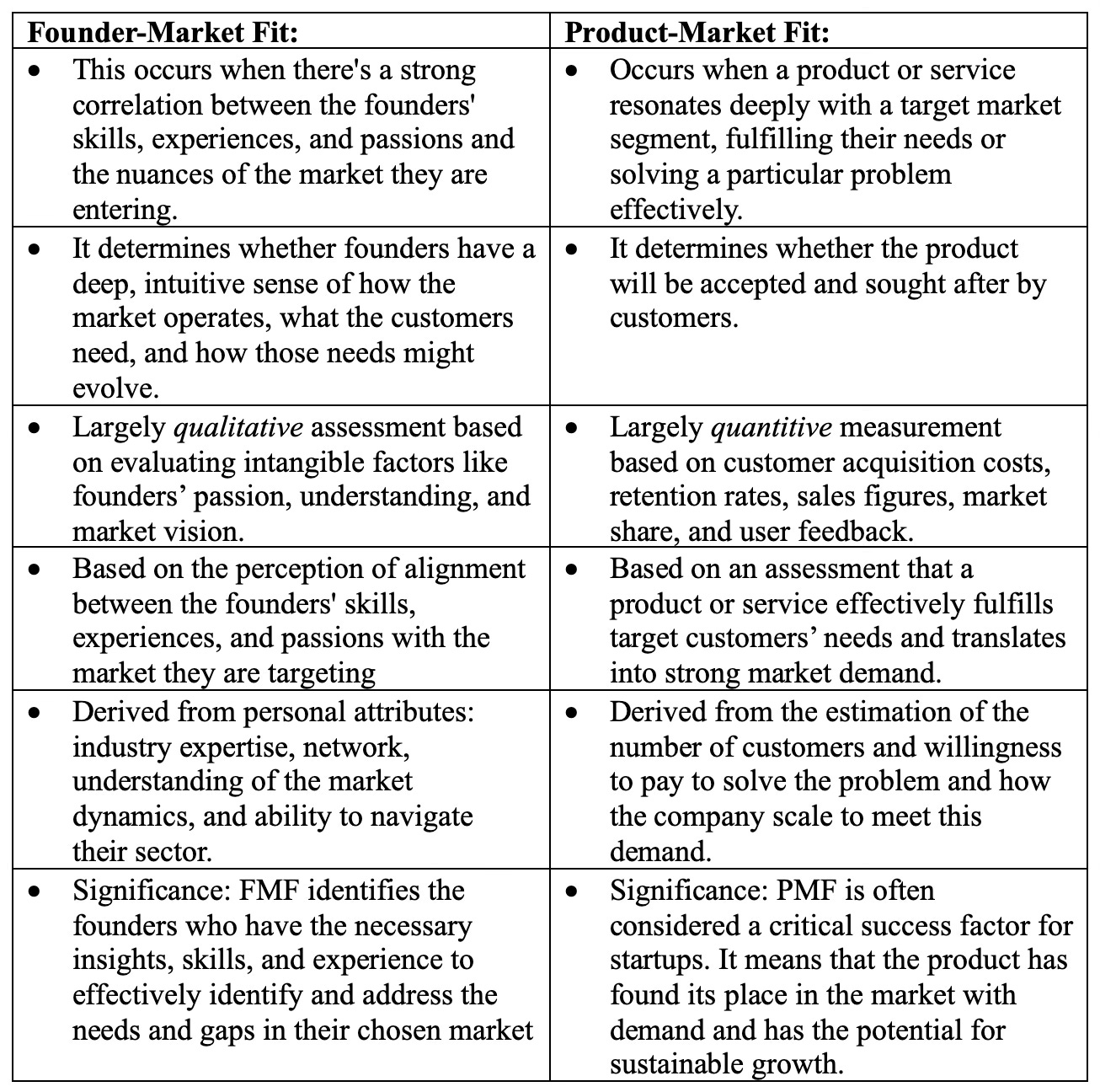Decoding the Real Impact of Founder-Market & Product-Market Fit on Startups' Journey to Success
Founder-Market Fit (FMF) and Product-Market Fit (PMF) are two concepts in the startup ecosystem – especially important to investors -- which address different aspects of a startup's potential for success but are all too often grouped because of the common denominator (market fit).
Here is a side-by-side analysis of these two concepts:
Determining FMF is crucial in the early stages of a startup, influencing everything from funding opportunities to product development and marketing. This highlights the need for founders with significant domain expertise in their startup’s target market. In contrast, PMF is demonstrated through proofs of concept (POCs) and value (POVs) and becomes relevant post-founding, particularly during the MVP stage and before product launch, playing a vital role in the startup's long-term success.
These elements gain further importance during funding rounds, especially as startups progress from “Friends and Family” seed funding to later-stage rounds like Seed-2, Seed-3, and Series A. During these rounds, the roles of founders may evolve, and the clarity of market fit often becomes more apparent, especially growing ARR. These aspects are especially pertinent during key transitions such as strategic pivots or discussions about GTM strategies, M&A or IPOs.
While FMF and PMF are frequently emphasized in the context of funding and company development, their importance might be overstated. In the ever-evolving world of entrepreneurship, the ability to adapt and innovate often surpasses the initial alignment with the market. The real value for a founder lies in their capacity to pivot and develop not just their product but also their team and the entire company. This flexibility can be more crucial than extensive market expertise at the outset. Similarly, for a product, the ability to evolve with shifting market needs can be more advantageous than achieving early PMF. The key to startup success frequently rests in managing diverse tasks, embracing change, and navigating through uncertainties rather than strictly adhering to pre-established market trends.
The importance of these criteria can vary depending on the startup's nature and industry. Nonetheless, these concepts will remain fundamental for founder and market analysis to navigate the complexities of establishing and growing a business effectively.





